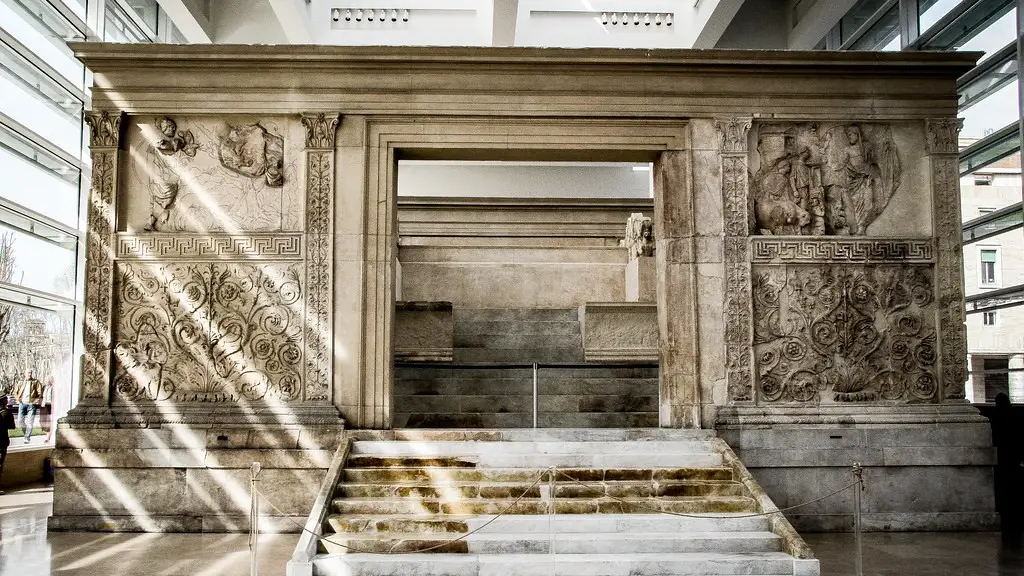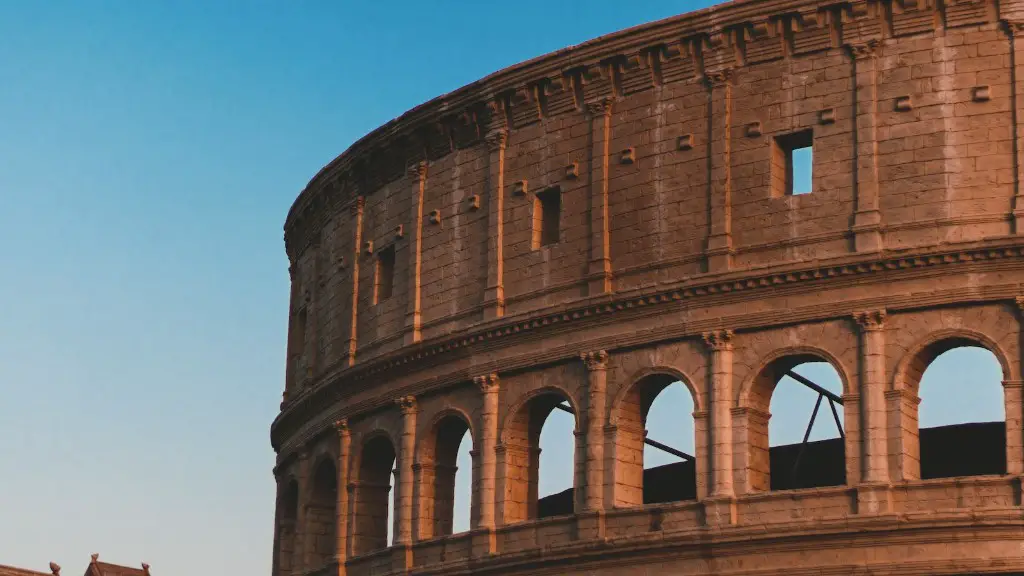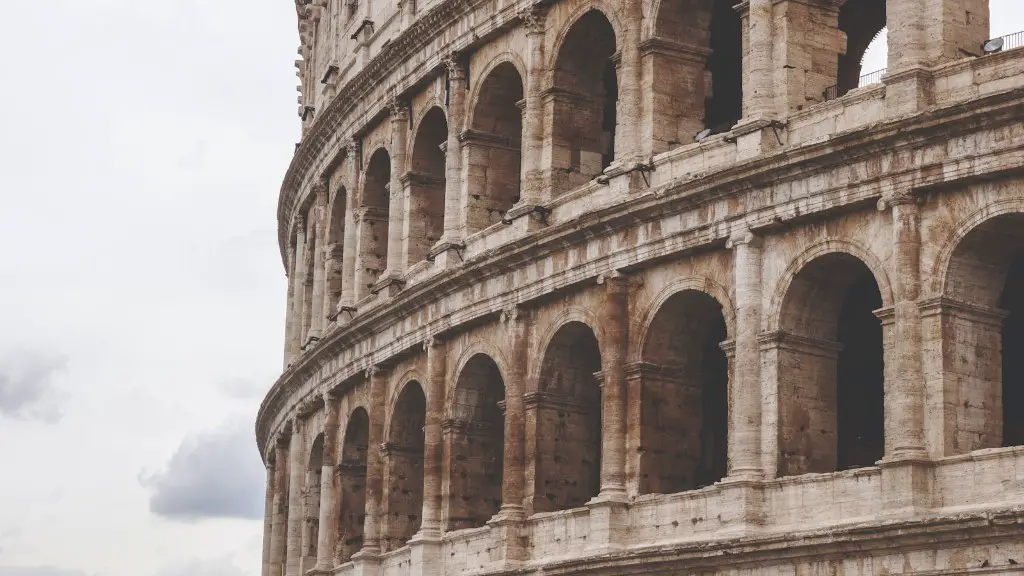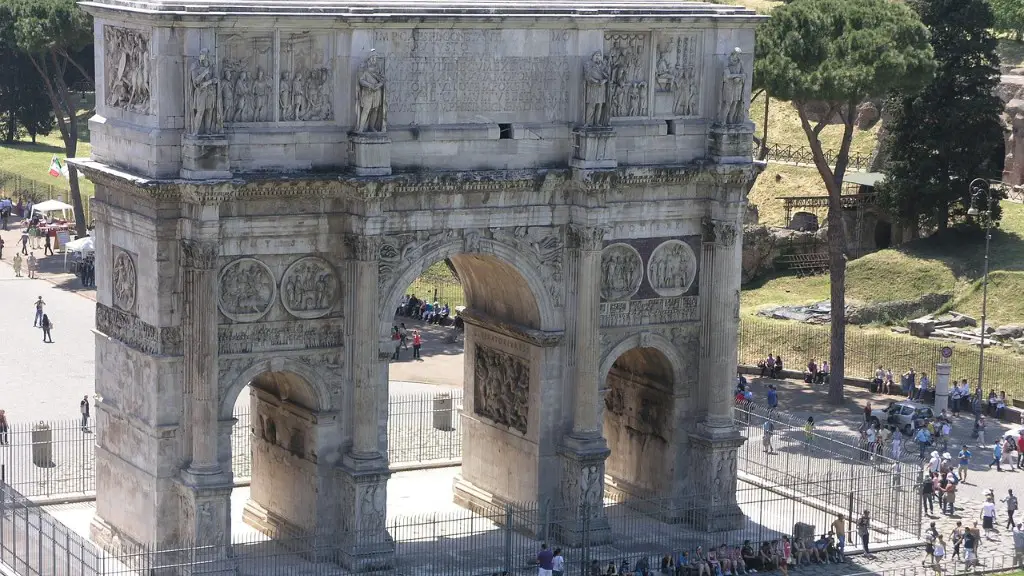Patricians were the ruling class of citizens in Ancient Rome. They were the wealthy and influential members of society who held most of the political power. Patricians were associated with the Senate and held the most important offices in the Republic, such as the Consulship, Praetorship, and Aedileship.Patricians were the only class of citizens who could vote in the assemblies, serve on the Senate and be elected to public office. They also had the right to the jus publicum, the privilege of attending meetings at the Forum Romanum, the right to own land, and the right to enroll their sons in military service. Patricians had a great deal of control over the government, including the authority to declare war and ratify treaties.
The origins of the Roman Patrician class are unclear, as many of the records from the time have been lost. Some believe they were originally Sabine landed nobility who intermarried with the ruling Etruscan family, while others suggest they were descended from Rome’s first ruling family, the Tarquins. Whatever their origin, the Patricians had a huge influence on the Roman Republic and Ancient Rome as a whole.
Patricians were wealthy landowners and businessmen and had a great deal of influence over the politics of Rome. They were the only group that had the right to stand for election to the Senate or be appointed to a position of office. They could also hold powerful positions such as Consul, Praetor, or Dictator. During war, Patricians were given command of the army, while non-Patrician citizens could only serve as lowly foot soldiers. They could also appoint magistrates, pass laws, and impose taxes. The Patrician class also benefitted from other privileges, such as the right to own land and the right to public meetings.
The Patricians played an important role in Rome’s legal system, as they had the power to pass and enforce legislation. The laws they made could not be challenged by any other class of citizen, though they could be appealed to the Senate. The Patricians also enacted sumptuary laws, which dictated what sort of clothing and jewellery people could wear and how much food they were allowed to consume. These sumptuary laws were designed to keep the lower classes in check and prevent them from having too much influence.
Despite their influence and power, Patricians were still subject to Roman law. In addition to regular punishments for unlawful activities such as criminal offenses, Patricians were subject to ‘poena secundum legem’ or ‘punishment according to the law’. This punishment was only applied to Patricians and was much harsher than the normal penalties. The Patricians also had to obey the law of the Twelve Tables, which was a set of laws that regulated the conduct of Roman citizens and was originally inscribed on twelve tablets.
The Patricians played a major role in the Roman Republic and Ancient Rome as a whole. Despite their wealth and power, they were still subject to Roman law. They had a great deal of control over the government, including the right to declare war and ratify treaties. They also passed legislation and enforced laws and had the right to public meetings. The Patrician class may have declined in power over time, but they left an undeniable legacy in Rome.
The Roman Legal System
The Patricians played a crucial role in the Roman legal system, as they had the power to pass and enforce their own laws. Patricians had the authority to establish the religious and civil laws of Rome and could enact sumptuary laws, which outlined what clothing and jewellery Romans could wear and how much food they were allowed to consume. In addition, Patricians had the power to pass and enforce criminal laws. This included the Twelve Tables, a set of laws that regulated the lives of Roman citizens and later became the foundation of Roman law.
Patricians also had the right to challenge non-Patricians to trials by combat. This allowed them to use their wealth and influence to gain victory in legal battles. If they won the battle, they could force the other party to pay a hefty fine, issue a restraining order, or even execute them. This system, while biased in favour of the wealthy, was legally recognized and accepted as the only form of justice.
Patricians also had the right to appeal to the Senate if they were unhappy with a legal decision. The Senate could, in turn, overturn the ruling or pass a new law if it passed a majority vote. Patrician families also had the power to make their own laws, one of which was the Lex Sacrificii, which allowed a family to make their own regulations on religious engagements, funerals, and marriage ceremonies.
The Role of Patricians in Commerce
In addition to their role in the legal system, the Patricians also controlled most of the commerce in the Roman Republic. Patricians had the exclusive rights to certain trades, such as banking and money-lending. They also had monopoly control over certain goods and services, such as the transport of goods. This meant that the Patricians could charge whatever fees they wanted, making it difficult for non-Patricians to engage in trade.
The Patricians also had influence over the production of goods. For instance, the Patricians of Rome had exclusive access to the workshop of the armorer, the Guild of Looms, and the Construction Workshops. As a result, Patrician families were able to produce goods more cheaply than non-Patrician citizens and thus had more wealth and influence.
The Patricians had complete control over the Roman market, including the prices and taxes of imported goods. They also had a monopoly over the sale of certain goods, such as olive oil. The Patricians were able to control the prices of goods and services by using the ‘rei publicae’ or ‘public auction’ method. This system allowed the Patricians to set a price for a public auction and then bid against other bidders to get the lowest price. This allowed the Patricians to acquire goods and services at a fraction of the cost.
The Social Life of Patricians
Patricians were the wealthiest and most influential members of society and enjoyed a luxurious lifestyle. They had grand homes with marble floors and frescoed walls, and were clad in the finest clothing and jewellery. They also enjoyed access to the best food and drink, and had private servants and slaves to cater to their every need.
The Patricians also had access to private gardens and bathhouses, book-lined libraries, and gaming rooms. They could also enjoy the company of poets, scholars, and musicians who entertained them at parties and banquets. The Patricians of Rome were known to throw lavish feasts and entertain guests using music, theatre, acrobatics, and chariot races.
The Patricians also enjoyed certain religious privileges. They alone had the right to worship at certain temples and could participate in special religious ceremonies, such as the rites of Venus. Patricians also had the right to build and maintain their own shrines and altars, where they could honour the gods and goddesses of Rome.
Patricians and the Roman Army
The Patricians were influential in the Roman Republic and had a strong presence in the military. Patrician officers had the power to appoint their own magistrates, pass laws, grant commands, and make strategic decisions. However, the Patricians were not allowed to take part directly in military campaigns and were instead expected to appoint officers from the lower classes to command the troops.
The Roman army was divided into two main divisions, the infantry and the cavalry. Patricians had access to both divisions, but they were only allowed to command the cavalry, while the infantry was commanded by non-Patrician officers. Patricians also had the right to own horse stables, which enabled them to breed and train horses for military service. This further increased their influence and power, as they had access to some of the best horses in the Roman Republic.
Patricians also had a great deal of influence over the port cities of Rome, as they owned and operated the ships that transported goods and people between the provinces and Rome. They also controlled the harbour dues and had a great deal of power over foreign trade.
The Decline of the Patrician Class
Despite their influence and power, the Patricians were eventually replaced by the wealthier and more politically powerful Plebeian class. The Patricians had exclusive access to certain goods and services and their monopoly over the market enabled them to keep prices higher than what was fair. This led to the rise of the Plebeians, who demanded a greater share of the wealth and power.
The Plebeian class soon outnumbered the Patricians and eventually managed to gain access to the legal system, politics, and business. The Plebeians were more successful in the public sphere, as they had the resources to compete with the Patricians and push for reform. This eventually led to the formation of the First and Second Triumvirates, which further weakened the influence of the Patrician class.
The Patrician class eventually faded from power and influence in Ancient Rome. However, their legacy remains, as their influence can still be seen in modern Roman society. The Patricians were important players in the politics and economy of Rome, and their role and influence still have an impact on Roman culture today.





